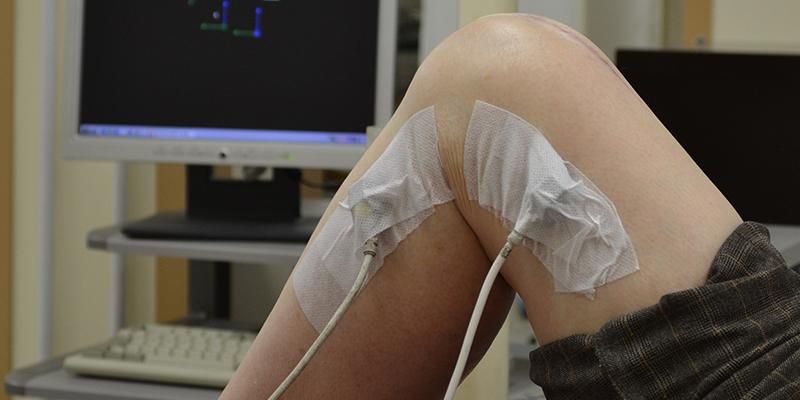
Scientists at the University of Leeds are investigating whether amateur athletes are at a greater risk of developing potentially-disabling joint problems such as osteoarthritis.
For the past five years, the researchers have been examining whether professional sports people and other elite athletes are more likely to suffer from osteoarthritis, a degenerative condition of the joints, because of the intense wear and tear they are exposed to.
Research has focused on the damage that can be done to knees and ankles using state-of-the-art medical imaging and biomechanical studies, primarily on professional athletes.
The research is now set to enter a new phase, with the award of renewed funding from Arthritis Research UK, as it examines the effects of participating in physical activity on the risk and management of osteoarthritis for amateur athletes.
Professor Lisa Roberts, Deputy Vice-Chancellor: Research and Innovation at the University of Leeds, gives her support and congratulations for the funding renewal received by the Arthritis Research UK Centre for Sport, Exercise and Osteoarthritis
Professor Anthony Redmond, from the University of Leeds, said: “The first stage of the research looked at the impact of sport on the joints of higher level athletes. That has helped us understand not only the long-term risks and benefits of physical activity on various joints, particularly the knees and ankles, but also to understand the mechanisms that can trigger joint problems.
“That picture is now allowing us to devise new treatment options and to widen the application so that the wider public can safely enjoy physical activity and all of the benefits that go with it.”
The researchers at the University of Leeds are part of a national consortium – called the Arthritis Research UK Centre for Sport, Exercise and Osteoarthritis – which is led by Nottingham University Hospitals NHS Trust and involves six universities: Leeds, Nottingham, Oxford, Southampton, Bath and Loughborough.
The charity Arthritis Research UK is funding the consortium – so far over £3 million has been spent on the first five years and a further £2 million has now been awarded for the next stage of the research.
Osteoarthritis is the most common form of arthritis and is estimated to affect over 8 million people in the UK. It is a long-term condition that can affect any joint but is most frequently seen in the small joints of the hands, the spine, hips and knees.
The condition causes pain, stiffness and swelling in the joints, which can in turn lead to a lack of mobility and the ability to carry out day-to-day activities.
The research team at Leeds is led by Professor Philip Conaghan and Professor Anthony Redmond. They believe this collaboration of the country’s leading experts is producing invaluable benefits in tackling a condition that can cause damage to people’s quality of life.
Professor Lisa Roberts, Deputy Vice-Chancellor: Research and Innovation at the University of Leeds, said: “The University of Leeds is internationally recognised as a leader in musculoskeletal research, and our researchers are extremely pleased to be able to continue this vital research into osteoarthritis.
“This Centre of Excellence will provide ongoing support for a number of postdoctoral fellows and PhD researchers at Leeds, helping us in our mission to understand the risks and benefits of sports and exercise in relation to osteoarthritis.”
Natalie Carter, Head of Research Liaison & Evaluation at Arthritis Research UK, said: “Over the next five years, we hope this research will also help us to pinpoint links and uncover risk factors for osteoarthritis in the wider population, which could in turn lead to innovative ways to treat or prevent the condition, and improve the quality of life for people living with osteoarthritis.”
Further information
Professor Philip Conaghan and Professor Anthony Redmond are available for interview. To arrange, or for further information, please contact Simon Moore in the University of Leeds press office on +44 (0)113 34 34031 or s.i.moore@leeds.ac.uk.